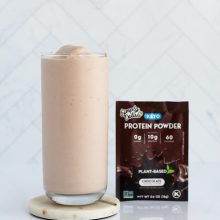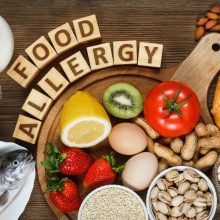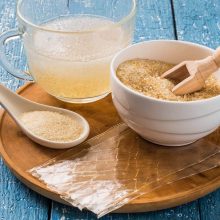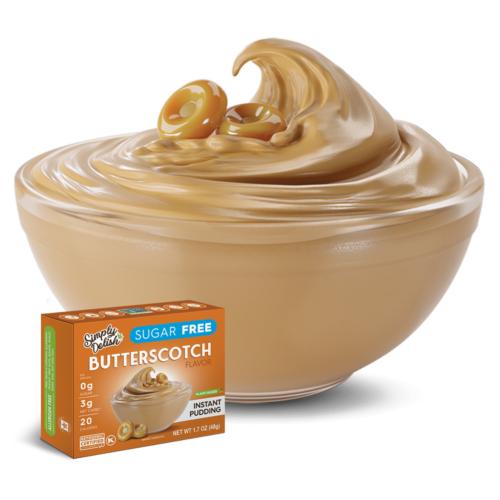
We’re tackling an important topic today. Obesity. Described by the National Institute for Health and Care Excellence (NICE) as “an imbalance between energy intake and energy expenditure”, obesity is affected by several factors. Food and drink consumption is one of the most important.
Genetics, lifestyle, lack of appropriate exercise and factors including medical conditions can result in obesity. However, a diet high in fat, particularly sugar, is a major culprit. Let’s take a look at some of the reasons why obesity is on the rise.
Table of Contents
Why Is Obesity On The Rise?
The trend towards eating outside of the home is credited with having an impact on rising levels of obesity. Surveys show that we tend to make less health-conscious choices when we dine out, and portions can be larger.
According to research compiled by the Centers for Disease Control and Prevention, citing an NHANES report from 2021, 41.9% of the US population has obesity prevalence. With “severe obesity” increasing from 4.7% to 9.2%. That’s not just bad news for our health but also for our wallets. The medical cost in the US of dealing with obesity was calculated in 2019 at $173 dollars and is only getting higher.
Being medically obese is estimated to cost individuals $1,831 more in medical costs.
Is Obesity A Problem In the US?
A Trust for America’s Health report suggests that the national obesity epidemic is not only growing but showing no signs of slowing down. A staggering 19 states have adult obesity rates in excess of 35%. To put that into perspective, a decade ago, zero states had an adult obesity rate above 35%. (See state-by-state rate chart).
It cites social and economic factors as the key drivers and suggests that many instances of obesity are beyond personal choice. But what about the rising increase in sugar consumption? What part does that play, and how much sugar should we consume daily?
Can Reducing Sugar Help Tackle Obesity?
Current dietary guidelines recommend limiting calories from sugar to less than 10%. Yet, Healthline suggests that an average adult in the US eats 17 teaspoons of “added” sugar a day which accounts for 14% of total daily calories based on an average 2,000 calorie-a-day diet.
We know too much sugar causes weight gain, which can lead to the dangerous build-up of visceral fat, not to mention obesity.
High-sugar diets are also linked to heart disease, increased blood pressure and atherosclerosis, a disease characterised by clogged arteries.
What Issues Does Too Much Sugar Consumption Cause?
For anyone interested in skin ageing and keeping those wrinkles at bay, there are even more resounding reasons to quit the sugar.
Consuming a diet high in refined carbs and sugars leads to a build-up of AGEs (advanced glycation end products) which may lead to premature skin ageing.
So if you want to stay looking and feeling young and beautiful and avoid being clinically obese, sugar-free is the way to go.
Does Snacking Lead To Obesity?
We know from several reports that snacking in the home went up significantly during the coronavirus outbreak. According to an NPD report, our love of snacks went up over 8%, with the preference being for sweet rather than savoury foods.
Market research ranks cookies, candy and cake up there as our favorite highly palatable snacks.
The word highly palatable is important to mention because this love of “taste” leads to over-indulgence. Taste is, of course, important. Nobody wants to feel like they are missing out on enjoying something that satisfies and even tantalises those sweet cravings.
In an industry that spends $14 billion on advertising in the US alone, an estimated 80% of that promotes sugary drinks, candy, and fast foods, so there’s little wonder our comfort snacks of choice tend to be sweet.
How Are Obesity And Junk Food Related
Particularly in children and younger adults, a direct correlation between eating junk foods and higher levels of obesity have been discovered.
Junk foods, much like tasty snacks, are highly palatable and tend to be packed with chemical additives and sugar, lacking in micronutrients and fiber. Our brain’s pleasure center, where dopamine is produced, and our brain’s biological clock have also been linked. It’s thought that eating high-calorie junk food not only brings pleasure, but it also disrupts regular eating routines and contributes to over-consumption, which again leads to higher levels of obesity.
Is Health Snacking An Option?
While snacking in between meals isn’t all bad and can provide a much-needed energy boost and help level out blood glucose, the problem occurs when too many ultra-processed, again highly palatable, snacks come onto the daily menu. These tend to be higher in calories, lower in nutrients and, therefore, a precursor to those rising obesity figures that we keep seeing reported.
Tips For Healthy Snacking
It’s entirely possible for snacks to be a healthy part of your regular eating pattern. The trick it to plan in advance and add healthy options to your grocery list so that your fridge and cupboards contain health options you and your family can quickly grab. We’ve listed out some of our favorite go-to snacks below:
- Fresh fruit and vegetables
- Low-fat yogurt and cheese
- Unsalted nuts, seeds and butter
- Frozen fruits
- Whole grain crackers, cereals and bread
- Zero-sugar desserts
Top Snacks For A Sweet Tooth
It is possible to indulge that sweet tooth but in a guilt-free way.
Simply Delish zero sugar, plant-based and keto desserts and puddings, as seen in Forbes, contain all the flavor even the most discerning palate craves but are Non-GMO and never contain artificial colors or flavors. Just lots and lots of deliciousness for you and your family to enjoy without the concern that you are contributing towards the obesity pandemic.
So if you’ve not yet discovered the World’s #1 sugar-free keto-certified Jels & Puddings from Simply Delish, isn’t it time you ditched the evil sugar-based snacks and switched to the healthier and tastier choice? Together let’s help fight the battle against rising obesity.

























